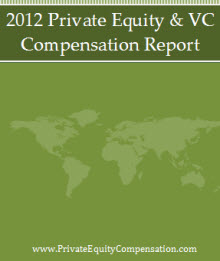It hasn’t been a good few years for any of the alternative asset classes, but investors in hedge funds and private equity have still fared better than those in venture capital funds, which why we are likely to see a further decline in venture fund raising as institutional investors shift their allocations. While the 4th quarter of 2011 showed signs of momentum for IPOs and fund raising on the whole was slightly up from 2010, the industry is in for rough sledding if liquidity doesn’t pick up as investors want nothing less than for VCs to show them the money.
2011 was marked by fewer deals but higher dollar value, which is usually great for creating buzz, but it has done little to spark the enthusiasm of investors. And, with most of the high value deals turning sour after their IPOs, investors are starting to feel a tinge of déjà-vu all over again as memories of 1999 – 2000 are still somewhat fresh in their minds. The impending Facebook IPO should provide a boost of energy, but should overall IPO activity decrease once again, the only exits in 2012 will be investors walking out the door.
Venture capital firms, at least the larger brand names, are a little more optimistic about 2012. They too want to see an increase in exit activity, but most are resigned to the fact that the condition of the market will dictate the pace and number of IPOs. The 2012 pipeline is full with more than 60 companies registered. But, according to Mark Heesen, President of NVCA, there will need to be at least 100 offerings in 2012 to declare the market back on track. Short of that, we may see further declines in fund raising due, in large part, to smaller, underperforming funds folding up their tents. The number of funds actively raising capital in 2011 fell to 135 from 205 in 2008. Some see that number dropping to 100 before the year is out.
The continuing consolidation of the industry means that fewer funds will raise larger amounts of money, which, ultimately, is good for investors, but not so good for companies in waiting. VCs will need to be much more selective, focusing less on early and mid stage companies in favor of more late-stage investments. Even large venture-backed companies that have already received multiple rounds of investment may find themselves on the outs as VCs look for less expensive ventures. The sectors expected to suffer the most are biotech and cleantech, with life sciences in general seeing less investment. And, that can’t be good for sorely needed medical innovation.
Many VCs welcome the continuing shakeout and the concentration of funding among the best performers. That should have the effect of improving returns. Intent on learning from past mistakes, the better VCs see a return to basics and a more rational approach to investment selection. If they can get any help at all from a more stable market, it may not be a breakout year, but one in which they can least show their limit partners the money.


